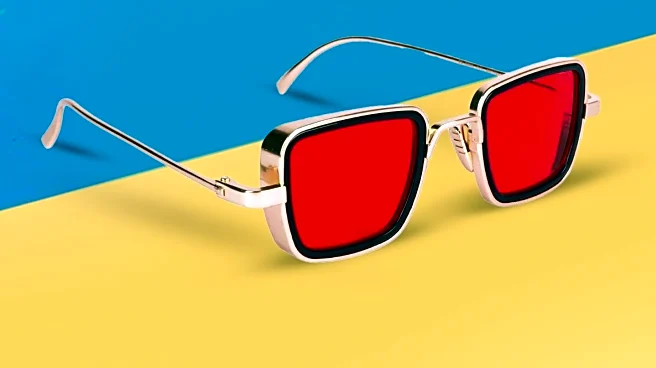What's Happening?
The American Academy of Ophthalmology has raised doubts about the effectiveness of blue light glasses in reducing digital eye strain symptoms. Despite the popularity of these glasses, which are designed to block or absorb blue light from screens, the Academy states there is no scientific evidence that blue light from screens causes eye damage. Blue light glasses are marketed to help reduce eye strain and improve sleep by blocking blue light waves that can disrupt melatonin production. However, the Academy suggests that the 20-20-20 rule, which involves looking at something 20 feet away for 20 seconds every 20 minutes, may be a more effective method to alleviate eye strain. The debate continues as some users report feeling less eye fatigue when using these glasses, although this could be attributed to a placebo effect.
Why It's Important?
The discussion around blue light glasses is significant as it impacts consumer choices and health practices related to screen time. With increasing reliance on digital devices, understanding the true effects of blue light exposure is crucial for public health. If blue light glasses are not effective, consumers may be spending money on unnecessary products. Additionally, the focus on blue light exposure highlights broader concerns about digital eye strain and its impact on productivity and well-being. The American Academy of Ophthalmology's stance may influence public perception and guide future research on effective methods to mitigate eye strain.
What's Next?
Further research is likely needed to conclusively determine the impact of blue light on eye health and the effectiveness of blue light glasses. As the debate continues, consumers may seek alternative methods to reduce eye strain, such as implementing the 20-20-20 rule or adjusting screen settings. Retailers may also need to reassess their marketing strategies for blue light glasses in light of these findings. The ongoing discussion may prompt more studies into the effects of prolonged screen time and potential solutions to mitigate its impact.
Beyond the Headlines
The conversation around blue light glasses touches on broader themes of consumer health awareness and the influence of marketing on health-related products. It raises ethical questions about the responsibility of companies to provide scientifically backed claims and the role of health organizations in guiding public health practices. As digital device usage continues to rise, the need for effective solutions to manage screen-related health issues becomes increasingly important.









